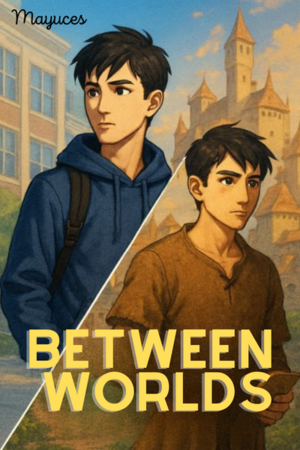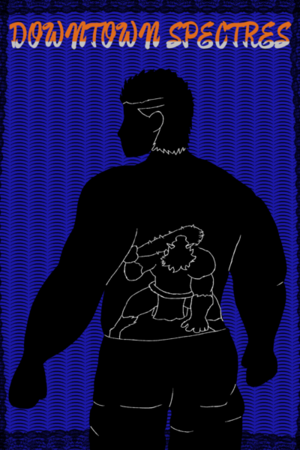Chapter 97:
CHAPTER 96: FRACTURES IN THE CITY
Between Worlds
Marcus spent the entire day in the modern world focused on work, then returned to his apartment for intense studying of war tactics from obscure military forums. The real world knowledge about guerrilla warfare, supply line disruption, and asymmetric combat could prove crucial for the strategies he was developing. Every piece of information might help save lives when Malachar's army arrived.
When he returned to Valdris the next morning, Marcus headed straight to the marketplace with Aldric to promote their new products. They'd produced enough cheap pants and button shirts to begin serious sales efforts, but they needed to establish market presence quickly.
The marketplace buzzed with unusual tension that Marcus noticed immediately. Groups of locals clustered around certain stalls while refugees gathered separately, creating invisible but obvious divisions throughout the commercial district. The conversations were louder than normal, with an edge of anger that hadn't been present during previous visits.
"The prices keep going up while the quality gets worse," complained a local woman examining vegetables at a nearby stall. "These refugees are driving honest merchants out of business with their cheap labor."
A refugee man overheard her comment and turned with obvious irritation. "We work twice as hard for half the pay, and you still blame us for the economy? Maybe if locals weren't hoarding supplies and charging unfair prices, everyone could afford decent food."
"Unfair prices?" the woman shot back. "We're barely surviving while you people get royal handouts and free housing. Why should we subsidize your comfort?"
Marcus watched the exchange with growing concern as other people stopped their activities to listen. These weren't isolated complaints but symptoms of deeper resentments that were spreading throughout the city.
"Aldric, we need to be careful here," Marcus said quietly as they approached a cluster of clothing vendors. "The mood is worse than I expected."
"I've noticed. Some of our old customers have been avoiding us since we expanded our refugee workforce," Aldric replied with obvious worry.
They set up their display of machine made clothing near the textile section of the marketplace, hoping to attract attention through superior quality and competitive pricing. The garments were remarkably well crafted compared to hand sewn alternatives, with consistent stitching and precise fits that should have been appealing to any customer.
But their first potential buyer, a middle aged local merchant, examined their products with obvious suspicion.
"These are refugee made, aren't they?" he asked bluntly.
"They're made by skilled workers using new manufacturing techniques," Aldric replied diplomatically. "The quality speaks for itself."
"I don't do business with outsiders who undercut honest local workers," the man said dismissively. "Find someone else to fund your charity projects."
Similar rejections followed as word spread that Aldric's business employed refugees. Customers who had previously been eager to work with them now acted as if association with refugee labor was somehow contaminating.
"This is ridiculous," Aldric muttered after their fifth rejection in an hour. "Our products are better and cheaper than anything else available. What more do they want?"
Before Marcus could answer, a commotion erupted near the grain sellers' section. Raised voices quickly escalated into shouting as refugees and locals faced off over accusations of price manipulation and unfair competition.
"You're hoarding flour while families go hungry!" a refugee woman yelled at a local grain merchant.
"I'm charging fair market prices for quality goods," the merchant replied angrily. "If you can't afford decent food, maybe you should go back where you came from instead of expecting handouts!"
The crowd around them grew larger and more agitated as people chose sides in the confrontation. Marcus could see that this was exactly the kind of incident that could spiral into serious violence.
"Aldric, we should move away from this area," Marcus suggested, but his partner was watching the dispute with fascination rather than concern.
"Look at them," Aldric said. "Locals and refugees fighting over scraps while the real problems go ignored. This city is tearing itself apart over the wrong issues."
The argument escalated when a local man shoved a refugee who had been gesturing too aggressively. The refugee shoved back, and suddenly fists were flying as bystanders either joined the fight or scattered to avoid it.
"Thieves and parasites!" someone shouted from the local side.
"Selfish hoarders!" came the response from the refugees.
Marcus grabbed Aldric's arm and pulled him away from the developing riot. This was exactly what the city didn't need with Malachar's army approaching. Internal divisions would make them even more vulnerable to external threats.
City guards arrived quickly to break up the fighting, but the damage was done. The marketplace felt poisonous now, with locals and refugees glaring at each other across hostile divides that hadn't existed just weeks earlier.
"We're not selling anything here today," Marcus said firmly. "Let's go back to our shop and rethink our approach."
As they walked away from the marketplace, Marcus reflected on how the refugee crisis was creating exactly the kind of internal weakness that an invading army could exploit. Malachar wouldn't even need to divide and conquer. The city was dividing itself.
Back at their shop, they found Sara organizing inventory with her characteristic efficiency. She looked up as they entered, immediately reading their discouraged expressions.
"Bad day at the market?"
"Worse than bad," Aldric replied, slumping into a chair. "Our old customers won't work with us anymore because we employ refugees. The whole marketplace feels like it's ready to explode."
"So we'll sell directly from our shops," Sara said pragmatically. "We don't need other merchants if our products are superior and our prices are fair."
Marcus nodded approvingly. "Sara's right. We'll establish our own retail presence and let customers come to us. Aldric, you mentioned wanting to buy shops in every district. Maybe this is the right time."
"If we can find sellers willing to work with us," Aldric said skeptically. "The anti refugee sentiment is spreading everywhere."
"But there are always people willing to make profitable deals, regardless of politics," he continued.
They spent the afternoon developing new business strategies that worked around the growing social tensions. Marcus found their resilience encouraging, but he couldn't shake his concern about the city's increasing division.
That evening, Marcus walked through Drakmoor's streets and observed the visible signs of social fracture everywhere. Drawings had appeared on refugee housing, locals avoided certain market areas, and groups of young men from both communities seemed to be organizing for confrontation rather than cooperation.
The guild system that had previously maintained economic order was weakened by political upheaval, but nothing had replaced it. Without institutional frameworks for resolving disputes, people were falling back on tribal loyalties and mutual suspicion.
Marcus thought about the intelligence he'd shared with Lord Hammond and Sister Korra. Even if they could convince the King to mobilize defenses, how could they organize effective resistance when the city was fragmenting along internal lines?
Malachar's mind control abilities would be devastatingly effective against a population that was already turning against itself. Divided communities would be easier to manipulate, conquer, and control.
As he walked past groups of locals complaining about refugee competition and refugees complaining about local discrimination, Marcus realized that the approaching military threat was just one part of a larger crisis. The kingdom was failing to provide effective governance, economic opportunity, or social cohesion.
But complaining about problems wouldn't solve them. Marcus needed to focus on actionable solutions: warning the leadership about external threats, strengthening his business and family's security, and building capabilities that could matter when the crisis hit.
Tomorrow he would continue developing tactical proposals for the royal presentation. He would also need to check on the Defenders' preparations and coordinate his family's contingency planning. The approaching storm required preparation on multiple fronts simultaneously.
Standing at his family's doorstep, Marcus looked back at the city lights and wondered how many of those families would survive what was coming. The internal tensions he'd witnessed today made him even more determined to find ways to protect everyone he could.
The question was whether unity could be restored quickly enough to mount effective resistance, or whether Drakmoor would tear itself apart before Malachar ever reached the walls.




Please sign in to leave a comment.